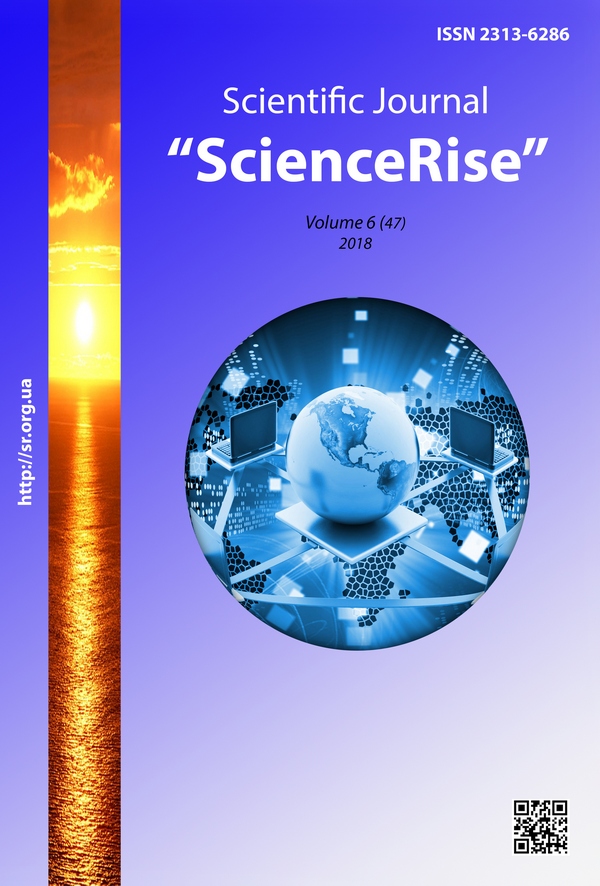Дослідження методів аналізу відгуків про товари магазинів електроніки
DOI :
https://doi.org/10.15587/2313-8416.2018.135069Mots-clés :
обробка природної мови, обчислювальні алгоритми, аналіз даних, комп’ютерна лінгвістикаRésumé
Робота присвячена вивченню методів аналізу відгуків про товари магазинів електроніки. Предметом дослідження є відгуки про товари. Метою роботи є аналіз методів обробки природної мови в контексті задачі аналізу відгуків. Методом дослідження є комп'ютерне та математичне моделювання.
В роботі були розглянуті різні класи методів аналізу відгуків про товари магазинів електроніки, в якості практичної реалізації було проведено порівняння результатів передбачення. Результати дослідження мають застосування при аналізі відгуків будь-якого магазину
Références
Ratner, A., De Sa, C., Wu, S., Selsam, D., Re, C. (2016). Data programming: Creating large training sets, quickly. Advances in Neural Information Processing Systems (NIPS). New York: Curran Associates, 3567–3575.
Lei, T., Barzilay, R., Jaakkola, T. (2016). Rationalizing neural predictions. Empirical Methods in Natural Language Processing. Austin, 107–117. doi: http://doi.org/10.18653/v1/d16-1011
Roth, B., Klakow, D. (2013). Combining generative and discriminative model scores for distant supervision. Empirical Methods in Natural Language Processing. Seattle, 24–29.
Srivastava, S., Labutov, I., Mitchell, T. (2017). Joint concept learning and semantic parsing from natural language explanations. Empirical Methods in Natural Language Processing. Copenhagen, 1527–1536. doi: http://doi.org/10.18653/v1/d17-1161
Voigt, R., Jurafsky, D. (2015). The Users Who Say 'Ni': Audience Identification in Chinese-language Restaurant Reviews. Proceedings of the 53rd Annual Meeting of the Association for Computational Linguistics and the 7th International Joint Conference on Natural Language Processing. Beijing, 314–319. doi: http://doi.org/10.3115/v1/p15-2052
% Of Consumers Trust Online Reviews As Much As Personal Recommendations. Search Engine Land. Available at: https://searchengineland.com/88-consumers-trust-online-reviews-much-personal-recommendations-195803 Last accessed: 04.06.2018
Recursive Deep Models for Semantic Compositionality Over a Sentiment Treebank. Stanford University Sentiment Analysis. Available at: https://nlp.stanford.edu/sentiment/ Last accessed: 07.06.2018
Wang, S., Manning, C. (2012). Baselines and Bigrams: Simple, Good Sentiment and Topic Classification. Proceedings of the 50th Annual Meeting of the Association for Computational Linguistics. Jeju, 90–94.
Hochreiter, S., Schmidhuber, J. (1997). Long Short-Term Memory. Neural Computation, 9 (8), 1735–1780. doi: http://doi.org/10.1162/neco.1997.9.8.1735
LeCun, Y., Boser, B., Denker, J. S., Henderson, D., Howard, R. E., Hubbard, W., Jackel, L. D. (1989). Backpropagation Applied to Handwritten Zip Code Recognition. Neural Computation, 1 (4), 541–551. doi: http://doi.org/10.1162/neco.1989.1.4.541
Téléchargements
Publié-e
Numéro
Rubrique
Licence
(c) Tous droits réservés Olekander Vechur, Oleksii Spodarets 2018

Cette œuvre est sous licence Creative Commons Attribution 4.0 International.
Our journal abides by the Creative Commons CC BY copyright rights and permissions for open access journals.
Authors, who are published in this journal, agree to the following conditions:
1. The authors reserve the right to authorship of the work and pass the first publication right of this work to the journal under the terms of a Creative Commons CC BY, which allows others to freely distribute the published research with the obligatory reference to the authors of the original work and the first publication of the work in this journal.
2. The authors have the right to conclude separate supplement agreements that relate to non-exclusive work distribution in the form in which it has been published by the journal (for example, to upload the work to the online storage of the journal or publish it as part of a monograph), provided that the reference to the first publication of the work in this journal is included.

